21st China Systemics Week (CSW 21)
Speakers and Speeches
(In Alphabetic Order of Family Names)
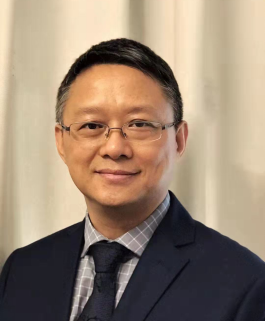
CHENGUANG CHANG (常晨光)
Sun Yat-sen University, China
Applying SFL in language teaching
Systemic Functional Linguistics (SFL), as an appliable linguistics, is designed to help solve language-related problems, including problems in language teaching and learning. Halliday sees all learning as itself linguistic activity. “Whatever you learn, you are engaged in language; learning involves ‘languaging’” (Halliday 2016). In fact, one of the most important areas of application of SFL has been language education. This meaning-based theory of language has provided invaluable insights and inspirations for the communicative approach to language teaching and continued to be explored in actual language teaching practice. In this workshop, I will try to explore the implications of different aspects of this theory in this area of application, focusing in particular on the following:
(1) The multifunctional view of language
Different from other models of language, SFL (Halliday & Mathiessen 2014) emphasises three broad types of meanings that language serves: the experiential, the interpersonal and the textual. This all-round view of the functions of language has important implications in language learning and teaching. Raising learners’ awareness in this regard can help them learn to understand a language more comprehensively and communicate more effectively in that language.
(2) The interdependence between language and context
SFL emphasises the interdependence between language and context. Socio-cultural factors influence and determine the kinds of things we do through language, and these factors are accounted for in SFL by invoking the concepts of register and genre. Register – the particular functional variety of language – reacts with the context of situation. Register analysis enables language learners to understand something of why people say or write what they do. Genre, in Martin’s formulation, involves the general notion of what people are doing through language and how they organize the language event in stages to achieve their purpose (Thompson 2014). The Sydney School genre-based approach to language teaching has proved useful in enabling us to make informed decisions in terms of both the curriculum and the pedagogy.
(3) The probabilistic nature of language
Halliday stresses that the quantitative properties of systems are part the grammar of an individual, and when one learns a language, one also learns the probabilistic profile of the language. Our discourse as a whole will pattern quantitatively according to the probabilistic profile of the grammar. To build the overall probabilistic profile of a language and the local variations within different registers, one needs plenty of textual experience, i.e. exposure to a broad range and variety of language input. This important insight has apparent implications for curriculum design and the selection and compilation of teaching materials.
References:
Halliday, M.A.K and C.M.I.M. Matthiessen. 2014. Halliday’s Introduction to Functional Grammar (4th edition). London & New York: Routledge.
Halliday, M.A.K. 2016. Aspects of Language and Learning. Heidelberg: Springer.
Thompson, G. 2014. Introducing Functional Grammar (3rd edition). London & New York: Routledge.
Dr. Chang Chenguang is a professor of linguistics at the School of International Studies, Sun Yat-sen Univesity, China. His research interests include systemic functional theory, discourse analysis, translation studies, and language education. His recent publications include Halliday and Sun Yat-sen University (co-edited with Dai Fan, Sun Yat-sen University Press, 2019), Linguistic Sustainability (co-edited with Yu Changsen, Sun Yat-sen University Press, 2020), Working with Discourses: Corpus and Systemic Functional Perpestives (co-edited with Josef Schmied and Matthias Hofmann, Cuvillier Verlag, 2020), and Functional Approaches to Translation Studies (co-edited with Si Xianzhu, Sun Yat-sen University Press, 2021).

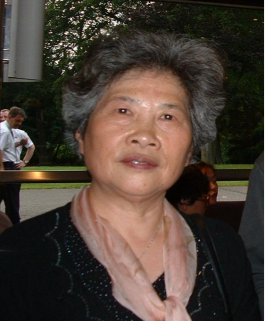
YAN FANG (方琰)
Tsinghua University, China
Introducing Textual Function
The presenter will explain the definition and concept of Textual Function from the SFL perspective and introduce the systems of Textual Function at the clausal and discourse levels. By citing English and Chinese examples from clauses and discourses, she will elaborate on the concepts of Theme, New, Hyper-Theme, Hyper-New, Macro-Theme, Macro-New, Thematic Progression and on the possibility of revealing the semantic meanings by applying these concepts to discourse analysis. Then she will discuss the definition and concept of the Genre theory in different periods of its development, with focus on the theoretical models proposed respectively by Ruqaiya Hasan and James Martin. Finally, the presenter will illustrate the applicability of their models in teaching English writing by referring to the results of an experiment of an English writing course conducted in an ordinary Chinese university for more than 10 years.
Before dealing with the Textual Function, she will briefly introduce the founder and main representatives of the school of Systemic-Functional Linguistics, its international and internal organizations and the key concepts of this school. The presenter will emphasize that in SFL, “meaning matters” much and that system is prior to structure – language system is regarded as the database for the construction of language structure.
Keywords: Systemic-Functional Linguistics, Textual function, Theme, New, Thematic Progression, Genre
语言功能理论入门
阐释系统功能语言学派有关语篇的定义,介绍小句的语篇功能系统和语篇的语篇功能系统。通过小句和语篇的英、汉两种语言的实际例子,阐明主位、新信息、超主位、超新信息、宏观主位、宏观新信息、主位进程模式的概念,探讨这些概念对揭示语篇意义的可能性。其次,将解释语篇类型(语类)的定义和概念,介绍语类研究的几个阶段,着重阐明韩茹凯和马丁的语类理论和模式,并通过在一所普通中国大学里进行了十几年英语写作教学试验的结果,阐述语类分析对写作教学的理论应用指导作用。在引入语篇的功能理论之前,将简介系统功能语言学的创始人、主要代表人物、国际国内的组织结构、系统功能语言学的关键词汇及其含义,强调该学派以意义为核心及系统优于结构的重要性。
关键词:系统功能语言学、语篇功能、主位、新信息、主位进程模式、语篇类型(语类)
FANG Yan, Professor of English and Linguistics of Department of Foreign Languages and Literatures, Tsinghua University; (retired since 2004); one of the Vice-Chairpersons of China Functional Linguistics Association (1995 to 2009), Deputy-Chair of Systemic-Functional Linguistics International Executive Committee (2002 to 2008); National Research Centre for Foreign Language Education (2001-2005); Co-organizer of the 1995 Summer Institute of Systemic-Functional Linguistics held in Tsinghua University; Co-convenor of the 1997 Discourse Analysis Conference held in Macao University sponsored by Macao University and Tsinghua University; Convenor of 36 ISFC (International Systemic Functional Congress); Editor or author of five books and more than 40 articles in Chinese or English; Field of Expertise/Specialty in English, Systemic-Functional Linguistics, Discourse Analysis and Applied Linguistics.


ZHANZI LI (李战子)
National University of Defense Technology, China
Transitivity and Ideational Meaning
In this age of valuing experience in the sense of just experiencing rather than owning something or acquiring some goods, the systemic functional linguistic theory of ideational meaning takes on a new significance in shedding light on understanding the basics of reflecting on our linguistic construction (at the clause level) of the flow of events or goings on. This talks looks at transitivity system in SFL by reviewing how a manageable set of PROCESS types gives meaning to our experience. Here is a taste of it in the typical Hallidayan discourse: “each quantum of change is modeled as a figure ---- a figure of happening, doing, sensing, saying, being, or having. All figures consist of a process unfolding through time and of participants being directly involved in this process in some way; and in addition, there maybe circumstances of time, space, cause, manner or one of a few other types.”
概念功能和及物性
社会科学家告诉我们,人不可能直接认识世界,人所知的生活是透过活过的经验(lived experience)。那么人们是怎么组织这种活过的经验的?人们以什么样的语法赋予其意义?或者说活过的经验是怎样表达的?为了创造生活的意义,人们必须安排自身事件经验的时间顺序甚至阐释其因果关系,建立自己和周遭世界前后一致的一份记录。系统功能语言学的概念意义分为经验意义和逻辑意义。经验意义主要指对及物性的研究。及物性过程则是对六种过程的描述。本讲座通过回顾和总结及物性系统的特征,概述系统功能语法概念功能中的经验意义,将其扩展到社会符号学的过程中,并考察及物性系统在新媒体语境中的延展,简要概述与经验意义密切相关的名词化和作格等概念,并且有一些针对每一种及物性过程的练习和讨论。
Li Zhanzi is Professor in the English Department, School of International Studies, National Defense University. She received her PhD in the English language and literature from the English Department of Peking University. She is a member of the English Teaching Supervisory Committee of the Ministry of Education. Her major research interest lies in systemic functional linguistics, discourse analysis and new media literacy.

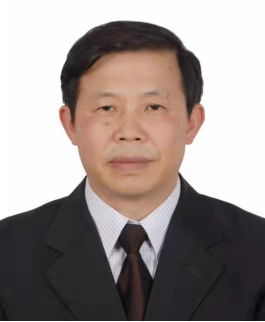
CHENGYU LIU (刘承宇)
Southwest University, China
Title and Abstract [to be coming]
Chengyu LIU is a professor of linguistics and Dean of International College, Southwest University. He got his PhD degree in linguistics at Xiamen University, and then worked as a visiting scholar at the University of Illinois at Urbana-Champaign between 2003 and 2004, a post-doctoral research fellow at Sun Yat-Sen University between 2008 and 2010, and as a visiting professor at Hong Kong City University in 2012. His major research interests include: systemic functional linguistics, discourse studies, and multilingualism and multilingual education. To date, he has published over 70 papers and 5 books in these fields. His academic affiliations include: Secretary General of the China Association of Functional Linguistics, Executive Director of the China Association of Discourse Analysis, Chairman of the China Association of Multilingualism and Multilingual Education. He also works as a member of the editing committee of the journal Asian-Pacific Journal of Second / Foreign Language Education (Springer) and the Journal of Pakistan Linguistics.

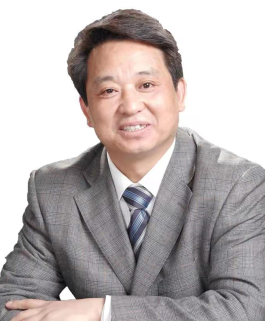
XINGWEI MIAO (苗兴伟)
Beijing Normal University, China
Analysing Transitivity in Discourse
The ideational function of language enables us to talk about our experience of the world, that is, to describe various processes and the entities involved in them. The ideational meaning is mainly realized by the transitivity system of language, and transitivity analysis involves determining the process type, participants, and circumstances realized in any clause. By examining the transitivity patterns in discourse, we can explain how experiences are represented and how the field of the situation is being constructed (Eggins 1994/2004: 266). Transitivity analysis plays an important role not only in explaining the ideational meaning of discourse but also in the scrutiny of the ideological implications of discourse. This talk sets out to introduce the main concepts and ideas involved in transitivity analysis and some of the methods and recent trends of transitivity analysis in discourse studies.
MIAO Xingwei, professor of School of Foreign Languages and Literatures, Beijing Normal University. He holds an M.A. degree in TEFL (Beijing Foreign Studies University, 1994) and a Ph.D. degree in linguistics (Fudan University, 1999). His research interests include functional linguistics, discourse analysis, pragmatics, stylistics and applied linguistics. He is particularly interested in the application of systemic functional theories to discourse analysis. He is currently Director of China Stylistics Association, Deputy Director of Association of English and Chinese Discourse Analysis, Deputy Director of China Discourse Studies Association, Deputy Director of China Ecolinguistics Association and Managing Director of China Pragmatics Association. He has published 5 books and more than 90 academic articles. His major publications include “The relationship between cohesion and coherence”, “The explanatory power of Relevance Theory to discourse coherence”, “Discourse functions of negative structure”, “Discourse pragmatics: a discourse perspective on sentence structure”, “Working mechanisms and discourse functions of ergativity”. He is currently working on the state-funded research project “Syntactic Processes of Information Management in Chinese and English Discourse”.


CHUANYOU YUAN (袁传有)
Guangdong University of Foreign Studies, China
Forensic & Legal Linguistics and Forensic Discourse Study from SFL Perspective
This workshop will start with the recent name change (nomenclature) of this newly-emerging discipline from Forensic Linguistics (IAFL) to Forensic & Legal Linguistics (IAFLL): its Origin, Development, and Latest Status-quo both in Common-law countries and in China.
Then, we will focus on our own Forensic and Legal Discourse Studies from the SFL and LCT perspectives in China, which include, but not confined to:
1. Legislative discourse, with a focal point on its Fuzziness from the perspective of Graduation
2. Judicial opinions from the perspective of Genre and Discourse semantics
3. Construction of Rule of Law from the perspective of Multimodality
4. Judicial Social Worker’s identity in Community correction discourse from Appraisal system
5. Stancetaking and Value Positioning in Judicial Documents with Constellation Analysis
Finally, some future trends of development and topics of research will be discussed.
Keywords: Forensic Linguistics, Legislative discourse, Judicial opinions, Community correction discourse, Rule of law, Multimodality, Genre
Dr. Yuan Chuanyou is a professor and full-time researcher at the Center for Linguistics and Applied Linguistics, Guangdong University of Foreign Studies. He is currently the director of the Forensic Linguistics Committee of the China Association for Comparative Studies of English and Chinese, the director of the Forensic Linguistics Institute and the deputy director of the Functional Linguistics Research Center of Guangdong University of Foreign Studies. He has served as an Ordinary Member on the Executive Committee of the International Association of Forensic Linguists (IAFL) from 2013-2017. He has been engaged in teaching and research work in the fields of legal English, forensic linguistics, systemic-functional linguistics, legal discourse studies, etc. He has published some 20 academic papers in SSCI and CSSCI journals and an academic monograph. He has been funded and appointed by the China Scholarship Council and has been a visiting research scholar at Cardiff University and the University of Sydney, conducting collaborative research with Prof. Jim Martin and Prof. Karl Maton.

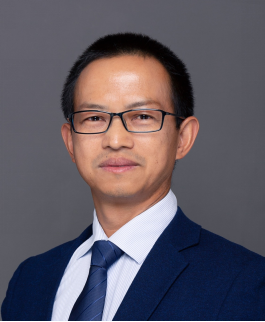
BINGJUN YANG (杨炳钧)
Shanghai Jiaotong University, China
Functional-Semantic Relations in Clause Complex
The terms ‘coordination, subordination and embedding’ are traditional types of clause combining (Haiman & Thompson, 1988) or clause linkage (Lehmann, 1988), and these relations are now widely understood as connecting clauses rather than sentences. As well-established grammatical terms, they are used in a variety of senses depending on distinctive theoretical contexts (Fabricius-Hansen & Ramm, 2008). However, disputes arise if to consider the function or meaning between clauses.
[T]here is no advantage to postulating a grammatical category of ‘subordinate’ clause; rather the grammar of English at least, and perhaps of other languages as well, suggests that a distinction between what we have been calling ‘hypotaxis’ and ‘embedding’ is crucial. (Matthiessen & Thompson, 1988: 317)
Thus, clause relations include hypotaxis and parataxis in terms of taxis (Halliday, 1985; 1994; Halliday & Matthiessen, 2004; Halliday & Matthiessen, 2014). The logico-semantic of clause combining is put under two categories: expansion and projection. The expansion type includes elaborating by which one clause expands another by elaborating on it or some portion of it; extending by which one clause expands another by extending beyond it; and enhancing by which one clause expands another by embellishing around it. The projection type includes two categories: locution by which one clause is projected through another as a construction of wording, and idea by which one clause is projected through another as a construction of meaning.
The SFL approach to clause complex is illuminating in many ways, but problems arise when embedding is considered. How to improve the SFL approach to logico-semantic relations in clause complex remains to be a significant question, particularly when Chinese is taken into consideration.
References:
Fabricius-Hansen, C., & Ramm, W. (2008). Editors’ introduction: subordination and coordination from different perspectives. In C. Fabricius-Hansen & W. Ramm (Eds.), Subordination versus coordination in sentence and text: A cross-linguistic perspective (pp. 1–30). Amsterdam & Philadelphia: John Benjamins.
Haiman, J., & Thompson, S. A. (Eds.). (1988). Clause combining in grammar and discourse. Amsterdam & Philadelphia: John Benjamins.
Halliday, M. A. K. (1985). An introduction to functional grammar (1st edn.). London & New York: Edward Arnold.
Halliday, M. A. K. (1994). An introduction to functional grammar (2nd edn). London & New York: Edward Arnold.
Halliday, M. A. K., & Matthiessen, C. M. I. M. (2004). An introduction to functional grammar (3rd edn). London: Hodder Arnold.
Halliday, M. A. K., & Matthiessen, C. M. I. M. (2014). Halliday’s introduction to functional grammar (4th edn.). London & New York: Routledge.
Lehmann, C. (1988). Towards a typology of clause linkage. In J. Haiman & S. A. Thompson (Eds.), Clause combining in grammar and discourse (pp. 181–225). Amsterdam & Philadelphia: John Benjamins.
Matthiessen, C., & Thompson, S. A. (1988). The structure of discourse and “subordination.” In J. Haiman & S. A. Thompson (Eds.), Clause combining in grammar and discourse (pp. 275–329). Amsterdam & Philadelphia: John Benjamins.
Dr. Bingjun Yang was once a visiting professor at the University of Illinois at Urbana-Champaign and Basel University. He is now tenured full professor of systemic functional linguistics at Shanghai Jiao Tong University. His research articles appeared in journals like Language Sciences (2004), Australian Journal of Linguistics (2014, 2015, 2018), Journal of Quantitative Linguistics (2015), Lingua (2018), Social Semiotics (2019), and Journal of World Languages (2017, 2020). His academic books include Non-finiteness: A Process-relation Perspective (Cambridge University Press, 2022); Language Policy: A Systemic Functional Linguistic Approach (Routledge, 2017; with Rui Wang) and Absolute Clauses in English from the Systemic Functional Perspective: A Corpus-based Study (Springer, 2015; with Qingshun He).

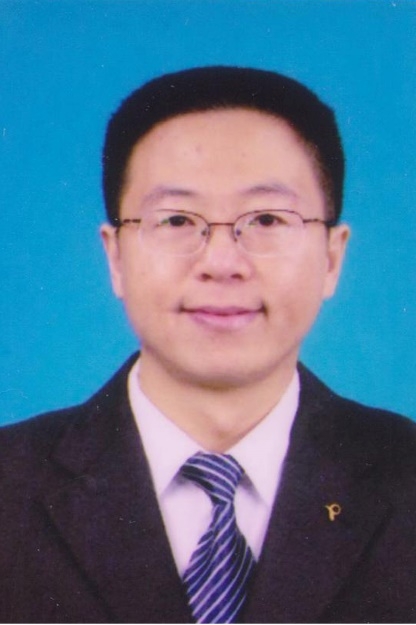
CHUNYU HU(胡春雨)
Guangdong University of Foreign Studies, China
Introduction to Disciplinary English
With the increasing importance of disciplinary knowledge in the social life and the rapid development of new technology, more and more attention has been paid in recent years to the construction, transmission and understanding of disciplinary knowledge. However, each discipline has its own way of organizing and construing world experience. Disciplinary English, as a functional variety, is characterized by its important role in the academia. Knowledge about the way disciplinary knowledge is constructed lexicogrammatically is crucial for students to understand the linguistic features of their field. In order to illustrate how knowledge is presented linguistically in disciplinary English, three aspects will be covered in this workshop. First, it intends to introduce some of the key concepts involved in the field, such as knowledge, disciplinary epistemology, and examine the relation of studies in disciplinary English to language learning and teaching, particularly ESP, EAP and EMI. Second, it will trace the development of the field and examine the contributions SFL has made to the study of disciplinary English. Third, it will illustrate how corpus linguistics can be applied to the analysis of knowledge building in English disciplinary discourse. For this purpose, several case studies will be presented as examples to show the advantages of SFL and corpus linguistics in the study. In particular, this workshop will focus on the functioning of various lexicogrammatical resources in representing disciplinary knowledge in the disciplines of management and economics.
Dr. HU Chunyu is a professor of applied linguistics at the School of English for International Business, Guangdong University of Foreign Studies, China. His research interests include corpus linguistics, systemic functional linguistics, and business discourse studies. He has published 2 books and over 30 journal articles. He has been teaching Economics, Business Essentials, and International Business over the past decade, which enables him to have fostered a keen interest in disciplinary discourse studies.

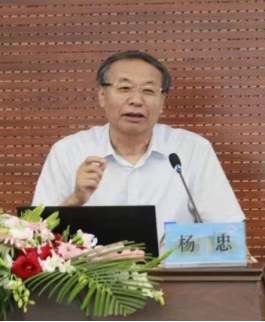
ZHONG YANG (杨忠)
Northeast China Normal University, China
Grammatical Metaphor: Consensus and Controversy
The theory of grammatical metaphor is invaluable contribution to the study of language in use. Systemic functional linguists have gained many insights into the trans-categorization in words, modality, and transitivity as well as the motivation of this kind of metaphor. Nevertheless, there are still some issues that await clarification. The problem of definition, the disagreement in classification of grammatical metaphor, and the relation between grammatical metaphor and lexical metaphor are reviewed and the solutions are proposed.
杨忠,东北师范大学外国语学院教授(二级)、博士生导师,兼任东北师范大学关心下一代工作委员会主任委员、中国英汉比较学会语篇分析研究会名誉副会长、认知语言学研究会常务理事、中国逻辑学会语用学研究会常务理事、吉林省翻译协会副会长。曾兼任首届教育部外语专业教学指导委员会委员、教育部大学生素质教育指导委员会委员、教育部学风建设委员会委员、中国英语教学研究会常务理事、吉林省社会科学联合会副主席。
研究方向为功能语言学、认知语言学、翻译理论与实践。迄今指导硕士生200余名,博士生24名。主持完成国家哲学社会科学基金项目1项,教育部人文社会科学基金项目2项,教育科学规划基金项目1项,教育部与英国文化委员会合作项目1项。在国内外学术期刊发表论文百余篇;出版著作及教材12部。获得中国图书奖1次、省社科成果奖5次;获吉林省优秀教学成果一等奖1次。1993年起享受国务院政府特殊津贴。曾获吉林省有突出贡献的中青年专家、宝钢教育基金会优秀教师、东北师范大学首批“研究生心中的好导师”等称号。


HUI YU (于晖)
Beijing Normal University, China
Below the clause: groups and phrases
In this talk, we shall look at the groups and phrases that make up the structural elements of the clause. Whereas a group is an expansion of a word, a phrase is a contraction of a clause. We shall examine the experiential structure of two main classes of group: nominal group and verbal group. The natural ordering of elements in the group will be accounted for. We shall also interpret the similarity of experiential structure between nominal groups and verbal groups, demonstrating how the structure of groups recapitulates the meaning that is incorporated as choice in the thematic structure of the clause. Finally we shall look at phrasal verbs and prepositional phrases. Our analysis will show why a phrasal verb is a single process rather than Process plus circumstantial elements whereas prepositional phrases are clause-like rather than group-like. Hence prepositional phrases should be regarded as a minor process and cannot be reduced to a single element.
Dr. YU Hui, Professor of School of Foreign Languages and Literature, Beijing Normal University. She got her Ph.D. in linguistics from Sun Yat-sen University in 2001. She completed her postdoctoral research in Beijing Normal University and has since been teaching in the English Department. She has been teaching Functional Linguistics for years both at the undergraduate and the graduate level. She is currently Vice Dean of School of Foreign Languages and Literature, Beijing Normal University. She serves as Vice Chair of China Association of Functional Linguistics and Standing member of Council of China Association of English-Chinese Discourse Analysis and China Association of Ecolinguitics. Her research interests include genre analysis (Discourse as Genre: Arresting Semiotics in Research Paper Abstracts, Henan University Press 2003; Essentials to Genre Analysis, Beijing Foreign Language Teaching and Research Press 2018), systemic functional grammar, genre typology (research grant by Ministry of Education: A corpus-based study of genre typology), academic and scientific writing and knowledge structure (research grant by Ministry of Education: A comparative study of knowledge structure across different educational discourses).

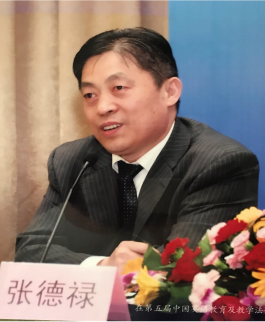
DELU ZHANG (张德禄)
Tongji University, China
Introduction to Multimodal Discourse Analysis
The present study is intended to give a short introduction to the basic theoretical framework of multimodal discourse analysis. Firstly, it introduces the reasons for the emergence of multimodal discourse analysis theory and the previous research results. Then it discusses the semiotic resources for the theory of multimodal discourse analysis, the basic models of multimodal grammar, the concept of design in multimodal discourse analysis, the relationship between modes, and the re-semiotization of modes in multimodal discourse. And finally, it briefly introduces the perspectives and the models of analysis for multimodal discourse analysis.
Keywords: multimodal discourse analysis; systemic functional linguistics; design; semiotic resources; multimodal grammar; synergy of modes; resemiotization
Zhang Delu, male, distinguished professor and Ph.D supervisor of Tongji University, vice chairman of Functional Linguistics Association; vice chairman of China Linguistics and Semiotics Society, and vice chairman of Stylistics Society. His main research fields include systemic functional linguistics, English stylistics, semiotics, foreign language teaching, discourse analysis, pragmatics and so on. He has published more than 200 papers in important journals at home and abroad; 28 monographs, translations, textbooks and dictionaries in important and authoritative publishing houses at home and abroad. He has presided over 11 scientific research projects, including 2 national humanities and social science projects. He has won more than 20 awards for teaching and scientific research, including one first prize for outstanding achievements in scientific research in colleges and universities (humanities and social sciences) of the Ministry of education, four second prizes and two third prizes for outstanding achievements in Social Sciences Research in Shandong Province; Three first prizes for outstanding scientific research achievements in colleges and universities in Shandong Province. He is now member of the Editorial Board of the international journal: Language, Context and Text; member of the Editorial advisory Board of the international journal: Multimodality and Society; member of the Academic Board of the CSSCI journal: Foreign Languages in China, member of the Invited Editorial Board of the journal: Journal of PLA University of Foreign Languages, and member of the Editorial Board of the journal: Shandong Foreign Languages.

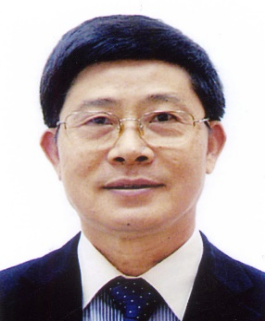
YONGSHENG ZHU (朱永生)
Fudan University, China
Interpersonal Function and its Realization
This talk will introduce Halliday's three-metafunction hypothesis first and then focus on the interpersonal function and its realization in mood, modality,forms of address, personal pronouns and evaluative words.
人际功能及其体现形式
人际功能的界定,与概念功能和语篇功能之间的关系,及其在语气、情态、人称代词、称呼语和评价性词语中的体现。
朱永生,复旦大学教授、博士生导师,国际学术刊物Linguistics and Human Sciences及《中国外语》等学术刊物编委、全国高校功能语言学研究会名誉副会长,曾任苏州大学外语系主任、复旦大学外文系主任、复旦大学国际文化交流学院院长、国际系统功能语言学研究会执委会委员、国务院学科评议组成员、全国高校外语教学指导委员会委员、斯德哥尔摩大学孔子学院理事长、教育部汉语国际教育硕士教学指导委员会委员等。研究方向:功能语言学和话语分析。专著有《系统功能语言学多维思考》、《系统功能语言学再思考》、《语境动态研究》、《系统功能语法概论》、《系统功能语言学概论》、《功能语言学导论》、《英汉语篇衔接手段对比研究》等,发表论文90多篇,参加过《英语搭配大词典》等大型工具书的编写和《英语语法大全》的翻译工作。获得省部级以上科研奖多项。